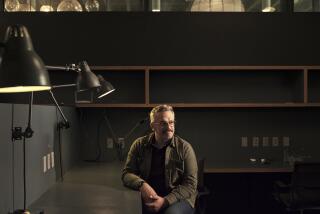Community Essay : ‘The Legal System Makes Prisoners of All Its Players’ : A first-time juror expects a system of fair judgment. Instead, she experiences a ‘game’ played by attorneys and judge.
- Share via
I have just finished two weeks on jury duty. The verdicts are in, and I am not sure that justice has been served at all. We made our findings as clearly based upon the law and the evidence as we could, and yet I am sitting here feeling sick to my stomach.
We had a complicated case but not one with earth-shaking ramifications. There was a business deal that went sour, involving a coffee shop in a lower-middle-class neighborhood, landlords who thought they had a tenant, and a restaurateur who thought he had partners. They had a poorly drafted agreement and an ocean-full of misunderstandings between them. It was our job to sort it all out and render justice.
But jury duty confirmed my frustrated understanding of our legal system as a very high-stakes game--but a game nonetheless. The person who controls and interprets the rules of the game (the judge) can make a huge difference in the outcome of the case because he or she determines which pieces may be played and what moves can be made.
The attorneys move the game pieces, supposedly in the best interests of their clients. And the jury sits on the outside, instructed not to think about anything not actually played in the game and then to judge winners and losers based on how well the game was played, rather than what may or may not be just.
What is the difference in amount between “a preponderance of evidence” and “clear and conclusive evidence?” On behalf of the community, we are asked to draw that line, but it is highly subjective for each person. How long is a “long-term” agreement? If you don’t use the word “partner” but describe a kind of partnership, are you partners? When and how are you allowed to change your mind? Solomon might have been able to answer those questions but he was not sitting with us.
And we bemoan the pieces not put into the game--the evidence we needed to see that wasn’t there; the testimony from living people whose credibility could be judged, rather than depositions; the faces of the litigants that we longed to see close up, rather than from the far reaches of the jury box. We must render justice only with what is there, not from the pieces we imagine are missing.
Outside sit two combative attorneys waiting to see if they played the game well, their anxious clients and the judge who could have done the whole thing without us except that they asked for a jury trial. We, inside the confining space of the jury room with its peeling paint and frigid temperature, are struggling against our desire to get the heck out of there and render a fair judgment based on an honorable consideration of all the evidence.
I want to conciliate, not judge. I want to make it come out all right for both sides with a settlement that restores honor, if not trust. But there is no room for that possibility, partly because each party rejected conciliation and decided to play the game, taking the chance of being declared the loser and gambling on being declared the big winner.
So we pile one factoid on top of another, matching the stacks, counting the differences and interpreting the law with minds unskilled in its language. Doing the best we can. And hoping somehow, not just out of this particular game, but the whole series of games, that justice is done.
God help the jurors in the Rodney King civil rights trial and Reginald Denny case. What they are being asked to do in the name of the community--in the name of each one of us--is going to test them as they have never been tested before. Knowing a fractured community is watching, with hundreds of personal and explosive agendas hanging on the outcome, they will be locked into judging one specific game, with rigid rules and its own particular players. God grant them wisdom, patience and courage, for the legal system makes prisoners of all its players.
More to Read
Go beyond the scoreboard
Get the latest on L.A.'s teams in the daily Sports Report newsletter.
You may occasionally receive promotional content from the Los Angeles Times.










